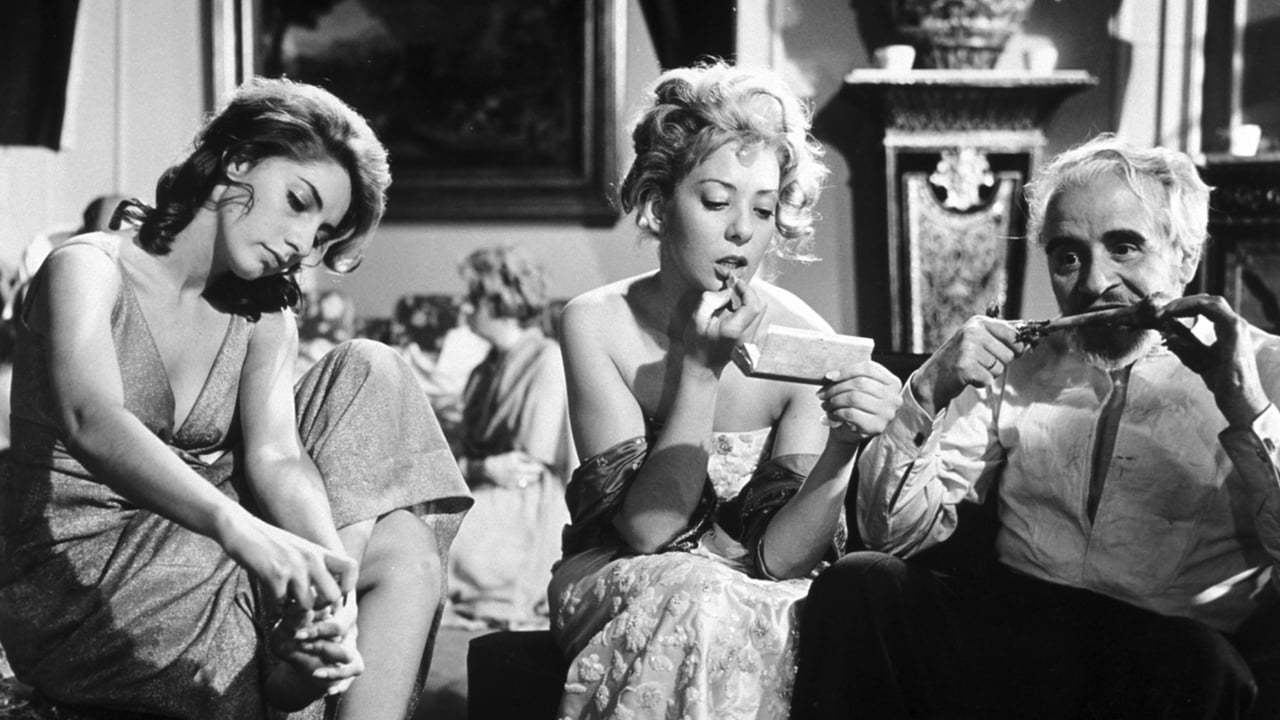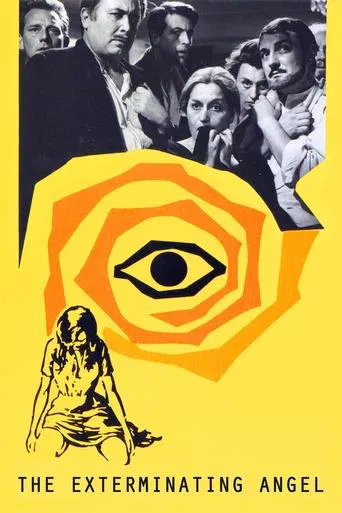

a satire. a bitter portrait of a too old reality. a parable. or only a story by Bunuel. like each of his films, a challenge. or more than one of challenges. because it represents more than a social critic. the motif - it is the story of contemporary realities more than one of the "60's. the isolation. the captivity, the need to return to old formulas for become, again, part of normal are traits of a film with virtue of warning. and this could be the cause for it remains, long time after you see, present in memory. as a dark picture of a world defined by fear and instinct.
... View MoreBuñuel's 1962 masterpiece of bourgeoisie-baiting Freudian repression, 'The Exterminating Angel' is a Surrealist slaughterhouse.A group of wealthy upper-class members of the bourgeoisie find themselves mysteriously trapped inside a house when attending a lavish dinner party. The doors are not locked and there is no logical reason why they cannot leave, yet they remain trapped like prisoners, and likewise, no one can enter (the flummoxed police are stationed outside, trying to work out how to save the rich people). Over the course of the film, the loathing and contempt that they really always felt for both themselves and one another comes bubbling to the rotten surface as they are slowly stripped of their status and pretensions, fighting over water, sleeping on the floor, and insulting one another as their hungry bodies begin to stink from the oppressive heat.In this new world, the bourgeoisie's money and power are reduced to worthlessness. 'Anything but physical violence! This is not like us! Remember who you are, remember your upbringing!', a doctor exclaims, trying to break up a brawl, but this is a meaningless gesture -- here the rich are no better than anyone else, for even the servants and cooks had the earthy precognition to realise what was coming and depart at the start of the film, before the invisible padlocks manifested.This film is a brilliant, incredibly funny example of Buñuel's career manifesto: the rich and powerful are nothing without their wealth, and in the absence of the poor they have no one to control or feel superior to. Take it all away and they become the human beings (ie. animals) that all people really are, deep down. The poor are more important to the rich than they ever realise.A film like 'The Exterminating Angel' serves to remind us that, regardless of wealth, we are all trapped inside the frigid, repressive boxes of our own (and society's) creation, and a conscious decision to leave them on our own terms is nearly impossible.
... View MoreThis is probably my favorite Bunuel feature. It combines the surrealist potential of his more abstract works, such as Un chien Andalou, with a solid, if absurd, plot. In this case, a group of bourgeois party goers find themselves unable to leave a room. It gets pretty absurd as they have to bust a pipe in the wall for water and slaughter a lamb for food.Meanwhile outside, no one is able to penetrate the building to save them. It's all pretty absurd and the results are hilarious. It's a premise that would make a great Monty Python skit and somehow makes for a great feature length film, too!
... View MoreBunuel's 1962 film revolves (almost literally) around a group of middle-class people at a dinner party. This theme would be explored further in The Discreet Charm of the Bourgeoisie but works better in his earlier piece. The premise of the film is playfully simple. The guests of Nobille are trapped in a room at the end of the evening unwilling or unable to leave. That's it. Until the third reel of the film when the epilogue gives us another context in which to view the previous 80 minutes worth of action.The characters are placed within this Kafkaesque narrative, seemingly of their own accord at first. There is no barrier to the next room yet no one can pass its borders. There is no science-fiction at play here, more an existential angst keeping them from what lies beyond. Some of the players half-heartedly try and make their escape but some give-up without trying or stall at the last, crying, unable to move further. Their predicament is not one of comfort either, there is death, starvation and thirst within the group and their ordeal goes on for weeks. Occasionally Bunuel brings the audience out of the room and we see people on the outside staring at the house with as much perplexity as those trapped inside. A rescue attempt is made but again, no one really tries to just walk in, open the doors and let the poor wretches out.What are we to make of the situation. Obviously there is a metaphor that Bunuel wants us to read. Is it a simple case of the middle classes being trapped within their own understanding of the world, with the desire to understand other kinds of people merely an act of lip-service to their supposed ideals? Is it a comment on the Spanish Civil War whereby those on the streets were forced to fight as the middle classes ate their lamb? The ending reveals more than I will say but I think this is Bunuel's best film of those I've seen and it is a crisp, timeless watch which asks more questions than it answers.
... View More